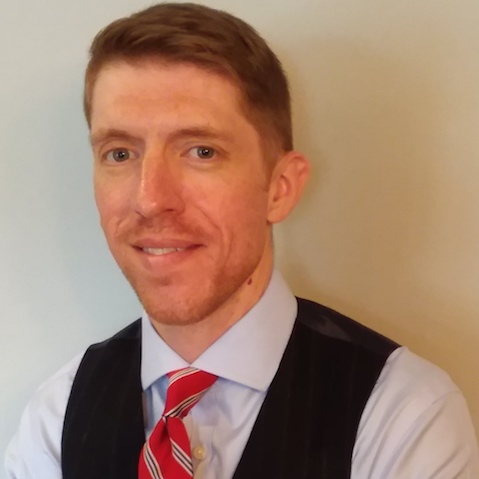***
Light was beginning to filter in. At 56° North latitude, the sun took forever to rise. Brightness became prevalent more through a process of color change than accumulation. If you waited, appreciating the progression from black through deep blue and dull gray-pink, all the way to ever-warming orange, you’d reach a moment of clear breakthrough, the emergence of one undeniable node of light. Henry thought of this while he fed Jake in the kitchen. Then he went looking for Nate.
He found her in the living room. She was curled up on Jake’s dog bed, a throw pillow from the couch under her head, her eyes closed, mouth open. He watched her, the rise and fall, the pull of breath. He heard Jake eating in the other room.
Henry would’ve let her sleep, at least for a while—she’d have to be back at the hotel to get in the motorcade around eight—but Jake finished and came in, and was discomfited by the appropriation of his customary post-breakfast resting place. He wasn’t a licker, he was too dignified for that, but he did sniff Nate’s hair. He fidgeted with concern, and his nails on the floor so near her ear did it. Her eyelids snapped. She started, then remembered where she was.
“Those are truly beautiful shoes, Henry,” she said. She rolled up to a sitting position. “Sorry, Jake,” she said. She stayed sitting, leaned up against the wall. Henry got down as well, sat beside her. They were all down on the ground now.
“What was in the bag, Nate?”
“Cocaine.”
“No shit?”
“Not that much. A kilo.”
“I figured it was just cash.”
Nate shook her head. “No, DEA wanted to do this. The Belarusians will sell it to a Greek syndicate for three- or four-hundred K. Interpol picks up the Greeks for making the buy. They squeeze the Greeks, the Greeks give up the Iranians, which is who everybody wants anyway.”
Henry nodded. Then shook his head. “Only four-hundred grand?”
“Used to be more,” Nate said. “Back in the old days? When we really meant it? Would’ve been millions. Now, hell…We basically bought that guy a condo on DuPont Circle.”
“And why are you the one doing all this?”
Nate shrugged. ‘What do you mean?’
“Why not somebody from DEA? Or CIA, Interpol, anybody. Don’t they have people to run all over hell all night with this kind of thing?”
“Well who do you think I am, Henry?”
“You’re the Vice-President’s National Security Adviser.”
“Yeah. And who do you think advises the Vice-President on national security?”
Henry thought for a minute, then shook his head again. Where the hell was the sun? Wasn’t it ever going to come up? He wanted her to see it. “I’m too old for this shit,” he said.
Nate smiled, tiredly. “Is that why you got fired from Newsweek?” she asked.
“I didn’t get fired, I resigned.”
“I see. Hungry for a desk job, were you? Soothing hum of bureaucracy?”
“They wanted sources! I had four guys already hiding out in a hovel in North Sumatra, I wasn’t going to—”
Nate put her hands up in protest and cut him off. “Ok, ok,” she said. “It’s ok. I don’t need to know.” She looked over at Jake who had lain down. His ears pricked up and the very tip of his tail wiggled.
“Well,” Henry said, standing up. “I sent the driver back to the hotel so he could get at least a couple hours’ sleep. Whenever you’re ready to go, I can call you a cab.” He put his hand out to help her up.
“Thanks,” she said, and pulled hard against his weight until she was standing.
“You want to shower here?”
She shook her head. “No, I got normal clothes at the hotel.”
“Ok.” Henry dialed his phone, ordered a cab. When it came, Henry went downstairs with her. Outside she lit a cigarette.
“How can you possibly smoke?” Henry asked. “With everything you’ve been through?”
“I don’t inhale,” she said, but her eyes weren’t wise-ass. They were squinty with indecision—she didn’t know why she smoked.
“Ok,” Henry said.
“Ok,” Nate said.
They hugged. “Look me up someday,” Henry said.
“If I make it that long,” Nate said.
When she was gone, Henry went back up. He looked out his window, over the old city’s rooftops, and saw the sun crack out along the edge of the university bell tower. Of course. There it is, he thought to himself. There’s the light.
 Sean Murray is a member of the U.S. Foreign Service. He has lived and worked in L’viv, Ukraine, Vilnius, Lithuania, Toronto, Canada, and Moscow, Russia. He currently lives in the Washington, D.C. metro area with his wife who is also a diplomat (and a poet). His short story, “How to Dream in a Technocratic Age,” was a finalist for the J.F. Powers Prize for Short Fiction.
Sean Murray is a member of the U.S. Foreign Service. He has lived and worked in L’viv, Ukraine, Vilnius, Lithuania, Toronto, Canada, and Moscow, Russia. He currently lives in the Washington, D.C. metro area with his wife who is also a diplomat (and a poet). His short story, “How to Dream in a Technocratic Age,” was a finalist for the J.F. Powers Prize for Short Fiction.